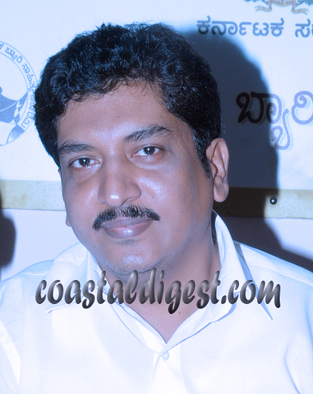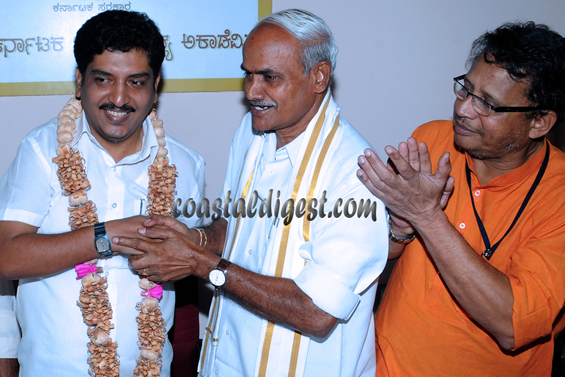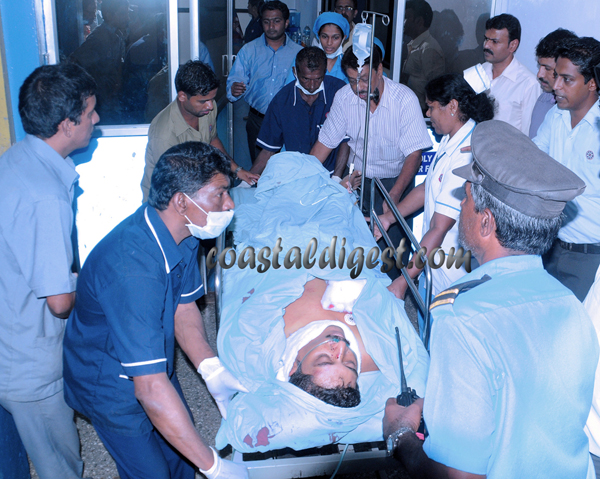
The police have arrested a person named Umar Farooq, a resident of Ullal, but he is believed to be just an 'informer' who had passed on the information to the attackers or their masters about the movements of Uchil. “He is just an informer who had passed on the vital information about my presence at the office. According to the data recorded on his mobile, only during the half-hour time when the incident took place he was present in Attavar area,” Rahim told the CM correspondent in an informal chat from his hospital bed.
Whatever be the line of inquiry adopted by the police, Mr. Uchil hardly has any doubt in his mind that the attack was carried out by ‘an organisation’, who allegedly felt offended by his 'provocative' remarks. "This is a democracy. My country has given me the right to exercise freedom of speech. If someone feels hurt by my statements, he has all the right to attack me verbally. He can also heap abuses on me and make me zaleel. Attacking someone physically or trying to kill someone cannot be the right way," he says.
Rahim had raised hackles among the Muslim community with his unabashed defence of Mr Bhat, who in a public speech had hurled abuses against Muslims in Uppinangady earlier in January. With Mr. Bhat drawing flak for his virulent speech both from Muslim community and the secular organisations, Mr Uchil along with the chairman of Karnataka Minorities Commission Anwar Manippady had played devil’s advocate. Earlier, in an attempt to appease the RSS leader, Mr Uchil and his wife had participated in Vajapeya Yaga conducted near Kalladka and took part in the Vaidic rituals. He also spearheaded a dharna in front of the DC office demanding withdrawal of cases booked against Bhat in connection with the Uppinangady speech.

But, many who followed his career closely rule out the possibility of the attack being a backlash. “This cannot be the handiwork of any organisation. This is something to do with his personal dealings. It looks like there is a rich woman who is at the centre of the present episode," says an eminent public figure, who chose to remain anonymous. Just a couple of weeks before the attack, rumours had spread thick and fast that Mr. Uchil had been attacked by a group of women in Padubidri. However, Mr. Uchil himself rubbished the rumour the same night and insisted that he had not stepped out of Mangalore that day. His proximity to the former Minorities Commission chairman Khusro Khuraishi had also raised eyebrows, with rumours suggesting that Mr. Khusro was made to "feel at home" in Mangalore. It is also said that the do fell out after a public spat.
However, Mr. Uchil rubbishes such allegations and firmly believes that the attack was masterminded by one particular organisation. "I don't know if the person the police caught knows anything about me. He has reportedly told the police that he does not know my antecedents. That can be true also. But, the person he has passed the message to could be an important conduit. Either he could be the actual person involved in the crime, or the person who had in turn passed the message on to the real masters. I am confident that the police will get to the bottom of the issue," he says.
According to Mr. Uchil, the person to whom the message was relayed had switched off his mobile ever since Farooq was nabbed. "The police have alerted the airport authorities about any possible attempt by the perpetrators to flee the country," he says. When asked about the tardy pace of inquiry, Mr. Uchil says, “everything is on the right track so far. They (police) are doing their best. The perpetrators cannot run away from the long arm of law”. When asked about his own party leader not coming in open to decry the attack and demand a speedy action against the culprits, he says: “People came to me saying they will hold protest. But I asked them not to resort to such steps. I have faith in the system.”







Comments
Add new comment